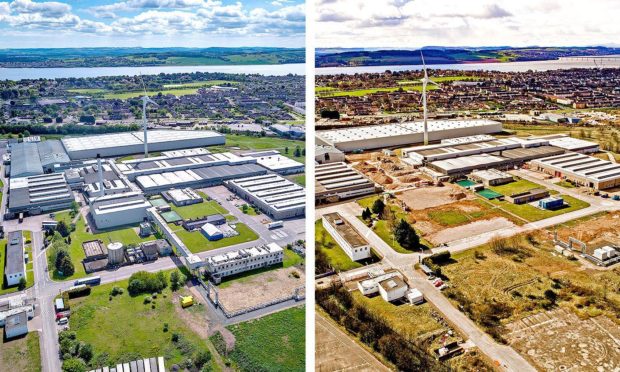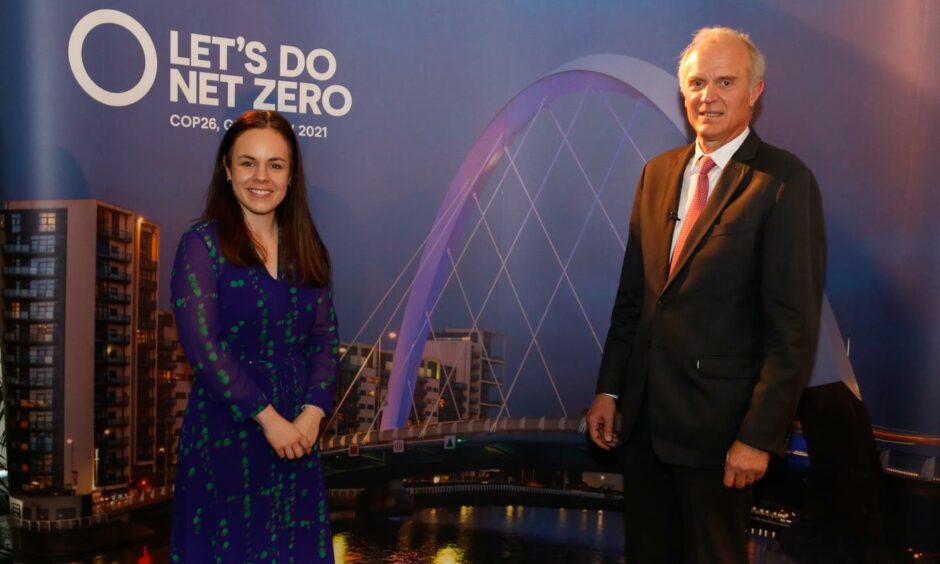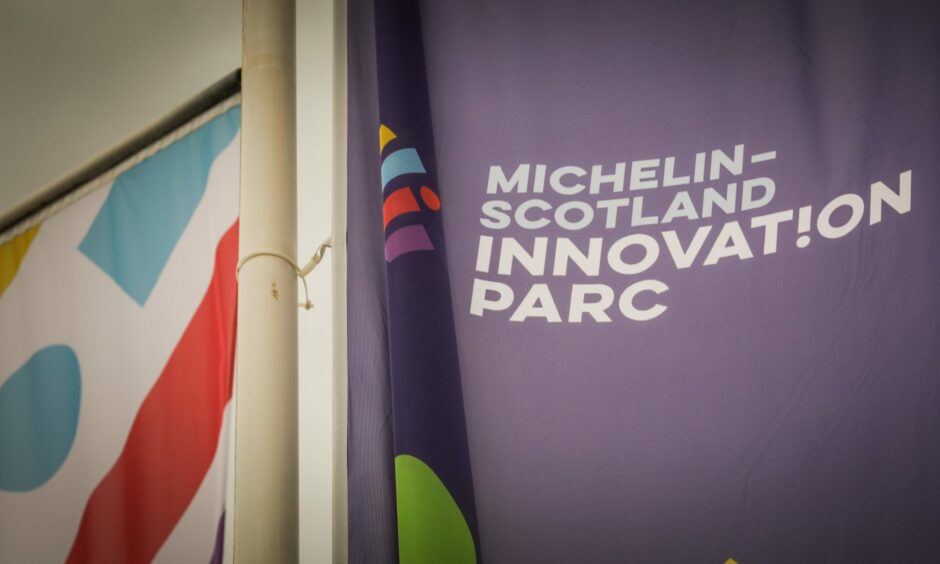The transformation of Michelin’s Dundee tyre factory into a campus for high-tech innovation has been hailed as a worldwide “benchmark” for communities and industries set to be disrupted by plans for a greener future.
Speaking at a COP26 climate summit event, company chief Florent Menegaux argued the creation of the Michelin Scotland Innovation Parc – out of the ashes of the crisis-hit plant – should be used as a blueprint for saving towns and cities from closures.
Scotland’s finance secretary, Kate Forbes, also backed the 32-hectare Baldovie site as a “tremendous example of what’s required and what will be increasingly required if we’re serious about meeting our ambitions on the environment”.
The impact of climate targets on carbon-intensive industries such as the oil and gas sector has been a key feature of the UN summit in Glasgow.
The final workers at Michelin Dundee departed to bagpipes and applause earlier this year in an emotional moment that marked the end of almost 50 years of tyre production and generations of jobs at the plant.
It is hoped the campus will now be used to attract top companies working in green industries, such as sustainable transport and mobility, to replace the 850 jobs lost when the closure was announced.
Dundee lessons being shared worldwide
The experience in Dundee has already been used by Michelin to support 858 employees at its Bamberg site in Germany after it announced it would cease all activities this year.
Speaking at the Transforming Industrial Sites to a Net Zero Future event on Tuesday, Mr Menegaux said any project looking to follow the Dundee example must be sustainable, long-lasting and compatible with the local community.
“I think we have something that I hope will become a benchmark for activities worldwide,” he said.
“We have created a dedicated corporation to attract new types of industries that will be creating long-lasting jobs in the same area.”
Mr Menegaux said science and changing behaviours will be key to resolving the human-made climate issues being discussed at COP26.
A ‘just transition’ is key
He insisted access to training and upskilling for all workers is essential to a just transition – a concept which aims to ensure the benefits of moving to a greener society are shared widely, while also supporting those who stand to lose out economically.
The Baldovie site is currently in talks with possible tenants capable of bringing hundreds of good quality jobs.
Mr Menegaux said: “The issues are complex and the idea that one can do everything from A-Z is, I think, slightly arrogant.
“We need to make sure that you understand with whom you need to partner and how deep the partnership needs to be. That’s what we did in Dundee.
“You need to look at the local community, local authorities, governments and you need to look at all the academic, public, private activities surrounding you and think about what ecosystem you will recreate.”
We have to be ambitious
Ms Forbes said she learned lessons from the Dundee project and will take forward three key principles from the experience.
These include being ambitious, building trust and transparency between the public and private sector so they can work in “unusual and new ways”. She also wants to help projects avoid red tape.
“You’ve got to be ambitious,” she said.
“Rather than being on the backfoot, saying woe is us, what are we to do, get ambitious about what the potential is for sectors, for workplaces, for industries as part of our transition to net zero.”
Ms Forbes said Michelin Dundee is a “tremendous example” of what will increasingly be required as the government seeks to meet its climate ambitions.
“We had a situation where there was a threat to a number of jobs and I think I draw three principles from our work together that are actually applicable to the work that is required over the next few years,” she said.
“Inevitably, and I think we just need to be honest about this, getting serious about meeting our targets is going to be disruptive to different sectors and different workplaces.”




